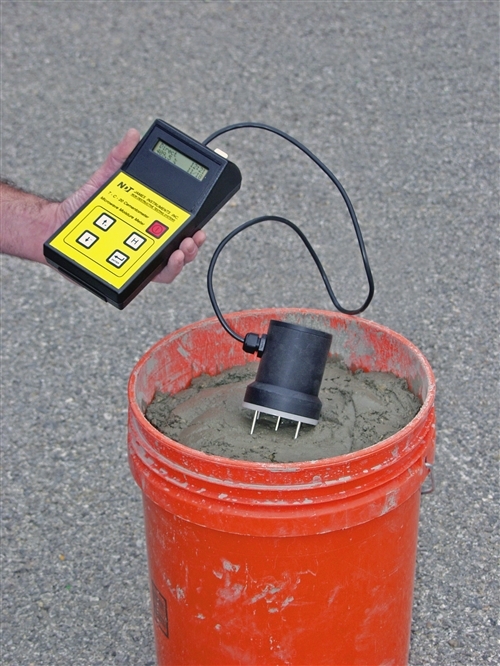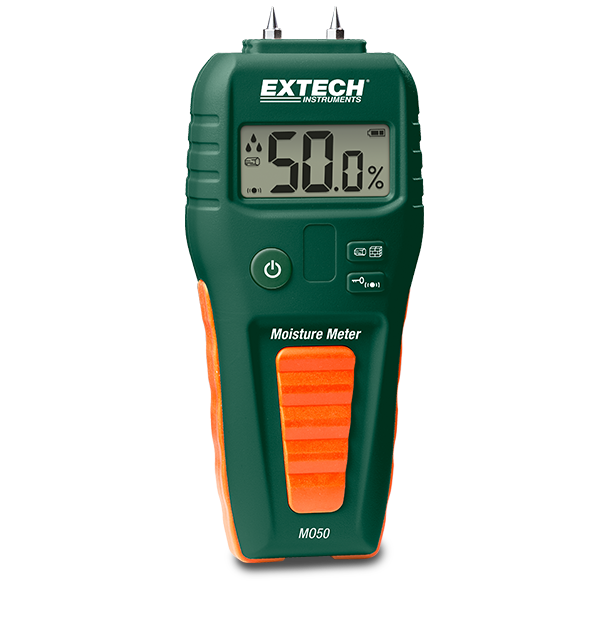Why Every House Owner Demands a Moisture Meter: Trick Benefits and Attributes
Why Every House Owner Demands a Moisture Meter: Trick Benefits and Attributes
Blog Article
The Ultimate Guide to Dampness Meters: A Comprehensive Review and How They Can Conserve You Money
Wetness meters offer as important devices in finding and keeping track of moisture web content in materials, assisting in avoiding pricey damages and making certain the high quality of items. Understanding the subtleties of different kinds of wetness meters, their applications, and the potential cost-saving advantages they use can be a game-changer for specialists and companies alike.
Kinds Of Wetness Meters
One common type is the pin-type moisture meter, which measures the electric resistance in between 2 pins placed into a material. Pinless moisture meters, on the various other hand, usage electro-magnetic sensing unit plates to check a bigger area without causing damages to the product's surface.

Infrared wetness meters measure the thermal homes of a product to establish its wetness web content non-invasively, making them beneficial for applications where pin or pinless meters may not be ideal. Comprehending the various types of moisture meters readily available can aid markets choose the most ideal tool for their details moisture dimension requirements.

Benefits of Making Use Of Wetness Meters
Moisture meters provide indispensable advantages in accurately evaluating and keeping an eye on dampness degrees in varied products and settings. One of the key advantages of making use of dampness meters is the avoidance of possible damages created by excess dampness.
Moreover, making use of wetness meters can lead to raised energy performance. In agricultural settings, dampness meters play an important duty in optimizing plant returns by allowing farmers to check soil wetness degrees and make notified watering decisions.
Just How to Choose the Right Dampness Meter
When picking a moisture meter, it's necessary to make sure that the meter is appropriate for the certain material you will certainly be testing. Different products have differing electrical buildings that can influence dampness analyses, so choosing a meter designed for your product is critical for exact outcomes. By thoroughly evaluating these variables, you can choose a moisture meter that meets your demands and offers exact wetness measurements for your jobs.
Proper Strategies for Moisture Meter Use

Expense Cost Savings Via Wetness Meter Applications
How can the strategic use of dampness meters cause substantial price savings across various sectors? Dampness meters play a crucial role in expense savings by stopping prospective damage and making certain quality assurance in various industries. In the agriculture sector, wetness meters aid in determining the optimal time for collecting crops, preventing excess or over-drying wetness that can affect the final item's high quality. click this link This precise surveillance assists farmers avoid unneeded losses and maximize their return.
In a similar way, in building and construction, dampness meters help stop expensive damages by identifying dampness levels in building materials, such as timber or concrete, which can lead to architectural problems if not addressed without delay. By determining trouble areas at an early stage, contractors can take these details rehabilitative procedures to avoid extensive repairs or substitutes, eventually conserving time and cash.
Furthermore, in the food processing sector, wetness meters are important for monitoring item high quality and making sure compliance with safety and security laws. By precisely measuring wetness content in food, producers can protect against putridity, preserve quality, and lower waste, resulting in significant cost savings. Generally, the strategic application of wetness meters is a valuable investment that can cause significant cost reductions and boosted efficiency across different markets.
Verdict
In conclusion, dampness meters are important devices for finding and determining wetness degrees in different products. By making use of the best dampness meter and complying with proper methods, users can properly avoid pricey damages created by excess wetness.
Dampness meters serve as essential devices in discovering and keeping track of moisture web content in materials, assisting in avoiding pricey damages and making sure the quality of products. Infrared dampness meters measure the thermal residential or commercial properties of a product to determine its wetness web content non-invasively, making them helpful for applications where pin or pinless meters see here now might not be ideal.Moisture meters use indispensable benefits in accurately keeping track of and analyzing moisture degrees in diverse materials and settings. In agricultural setups, moisture meters play a vital role in maximizing plant yields by allowing farmers to check soil wetness levels and make educated watering decisions.In conclusion, wetness meters are valuable tools for gauging and spotting dampness degrees in numerous materials.
Report this page